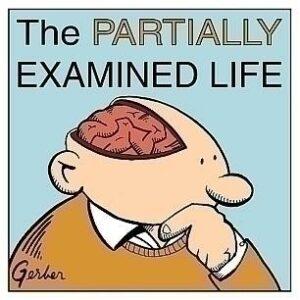
In this episode of the “Modern Wisdom” podcast, host Chris Williamson sits down with Christine Emba to discuss the topic of masculinity from a feminist perspective. They delve into the challenges faced by boys and men in today’s society, the impact of cultural shifts on traditional gender roles, and the need for positive role models for men. Emba’s thought-provoking article “Men Are Lost” serves as a starting point for their conversation, sparking a deeper exploration of the crisis of modern masculinity.
Christine Emba’s article “Men Are Lost” sparked a conversation about the challenges faced by boys and men in today’s society. While progress has been made in achieving gender equality, there is a growing concern that men are being left behind. Society has undergone significant changes over the past few decades, and many of these changes have not been favorable for men, particularly those in working-class jobs. Women now outnumber men in college, and the COVID-19 pandemic has further affected male college dropouts. Men also face higher rates of deaths of despair, stagnant wages, and a lack of positive representations of masculinity in media.
These challenges have left many men feeling lost and unsure of their place in the world. Traditional archetypes of men have been challenged, and the question of “What is a Man?” is just as valid as “What is a Woman?” when discussing gender roles and archetypes. The lack of positive representations of masculinity in media can push men out of the conversation and create a space for negative influences.
Feminism has played a significant role in shaping the conversation around masculinity. While the goal of achieving gender equality is important, modern feminism has shifted towards emulating men to achieve success. This can create antagonism between the sexes and neglect the needs and challenges faced by men. Positive examples of masculinity are lacking, leaving a vacuum for role models for men.
Role models and initiations led by older men play a crucial role in shaping masculinity and providing guidance for younger men. However, the feminization of certain professions, such as teaching and nursing, makes it harder for boys growing up in single-parent households to have male role models. Male-only spaces, while important for male bonding and addressing the loneliness epidemic, can be seen as exclusionary to women. It is essential to find a balance between inclusivity and the need for spaces where men can connect and support one another.
Redefining masculinity is a complex task that should recognize and celebrate the unique strengths and traits of individuals. A positive vision of masculinity should be aspirational and achievable, providing guidance and purpose for men. It is important to address the issues facing men without placing the burden solely on them to fix themselves. Initiatives and incentives are needed to change structures and fix problems, and society must stop framing discussions about men and boys’ struggles in a way that causes them to check out.
The crisis of modern masculinity is a real issue that needs to be addressed. Men are facing unique challenges in today’s society, and it is crucial to provide them with positive role models and support. Redefining masculinity in a way that is aspirational and achievable will help men find their place in the world and contribute to a more balanced and inclusive society. It is time to have open and honest conversations about men’s issues and work towards a future where both men and women can thrive.